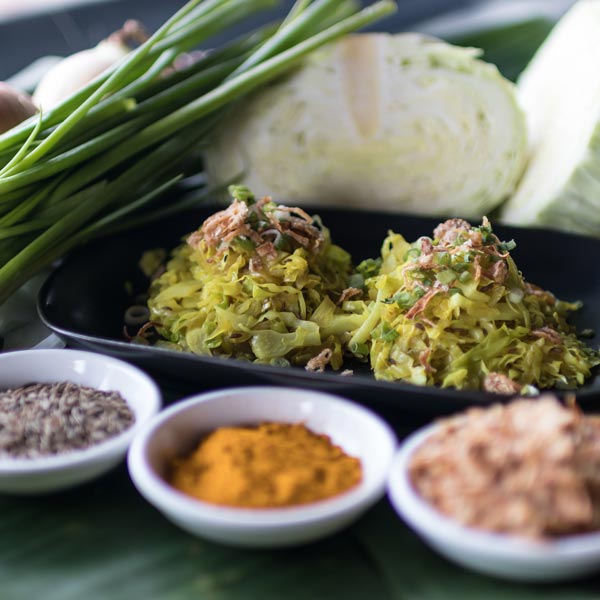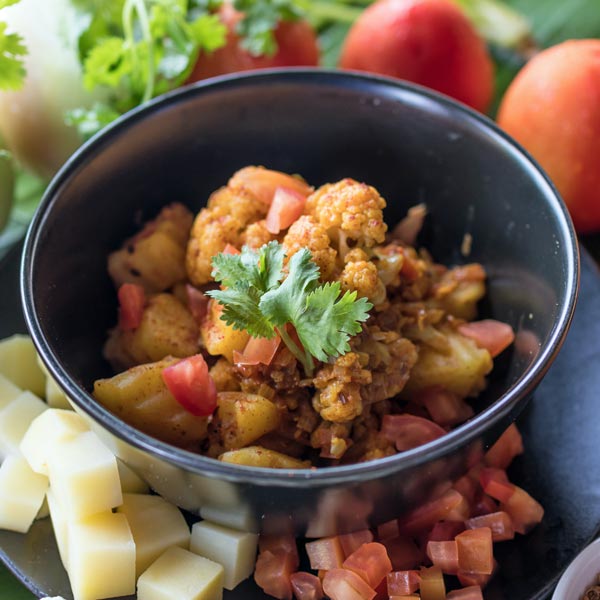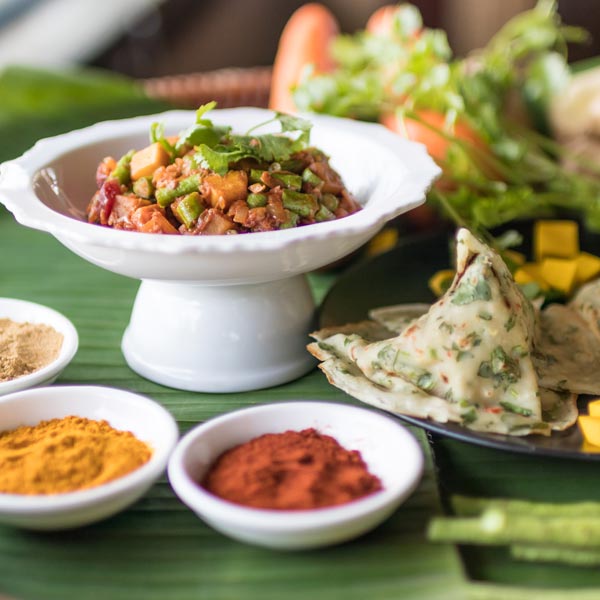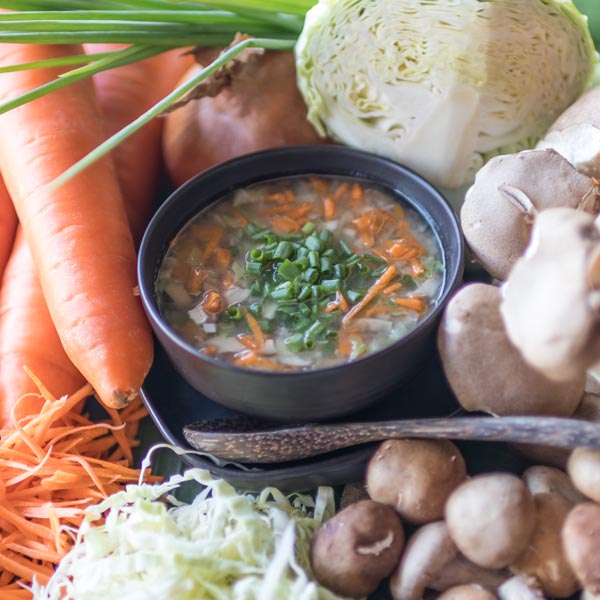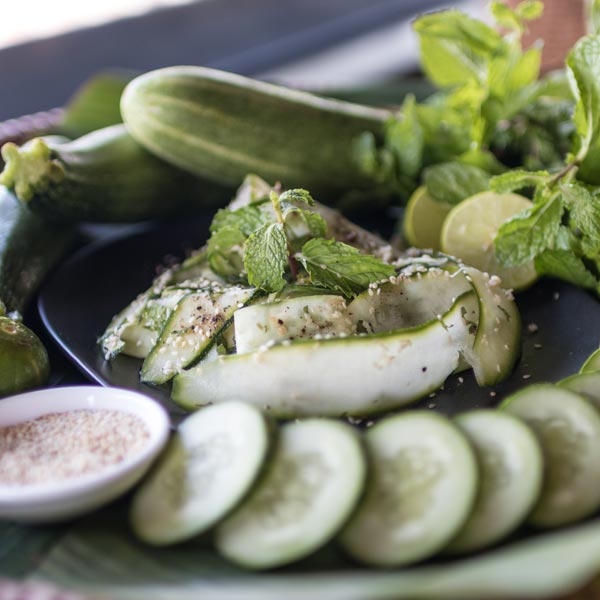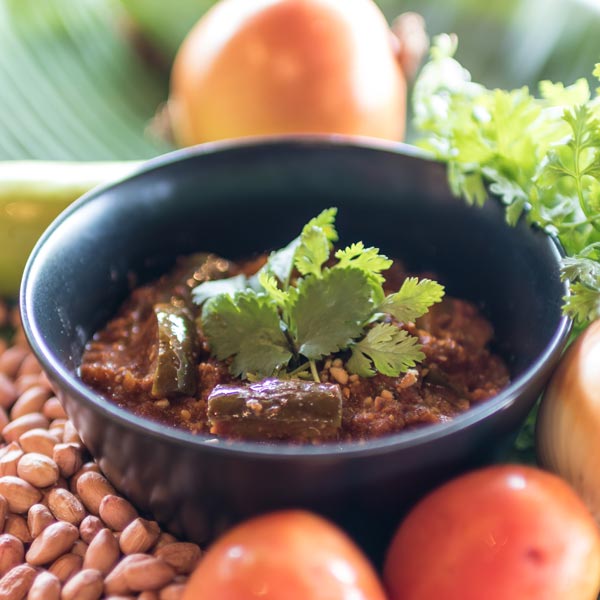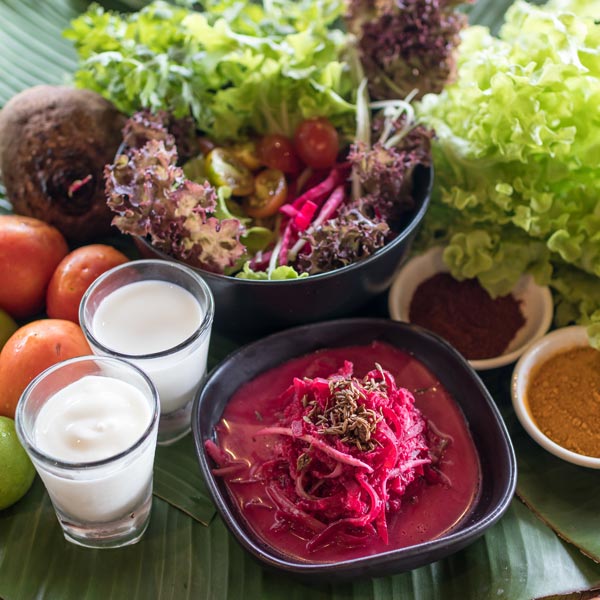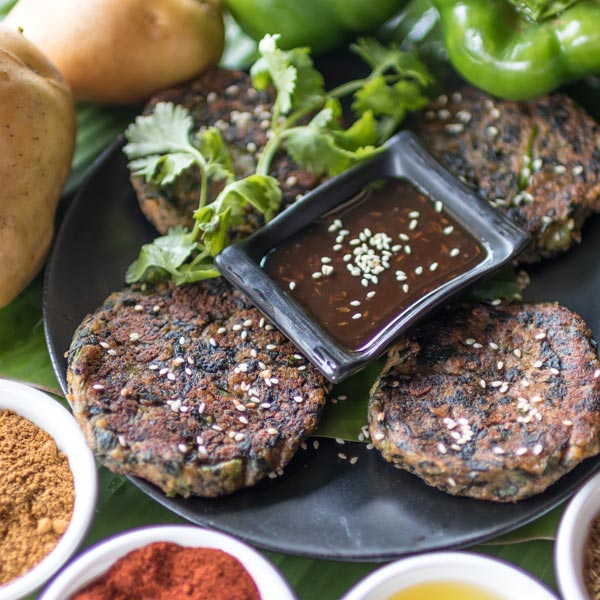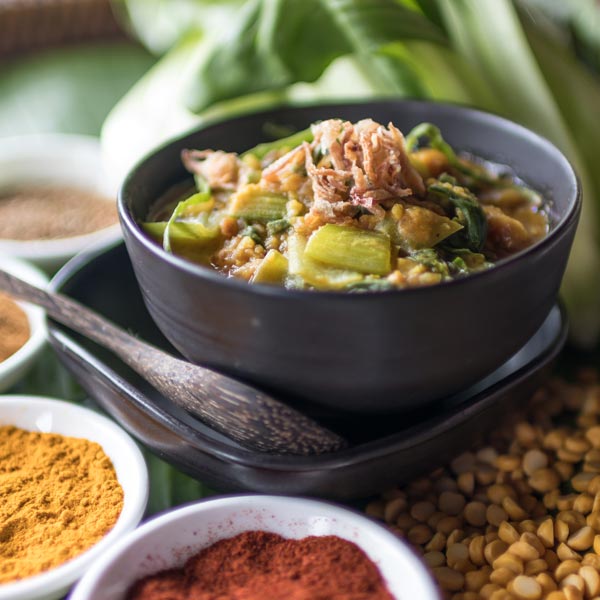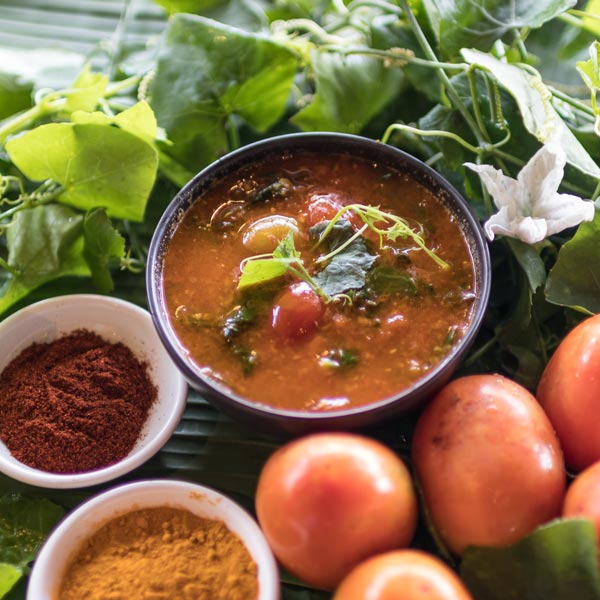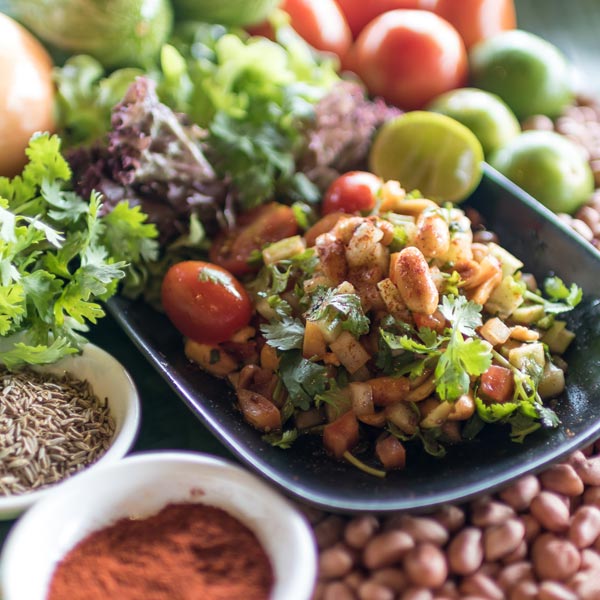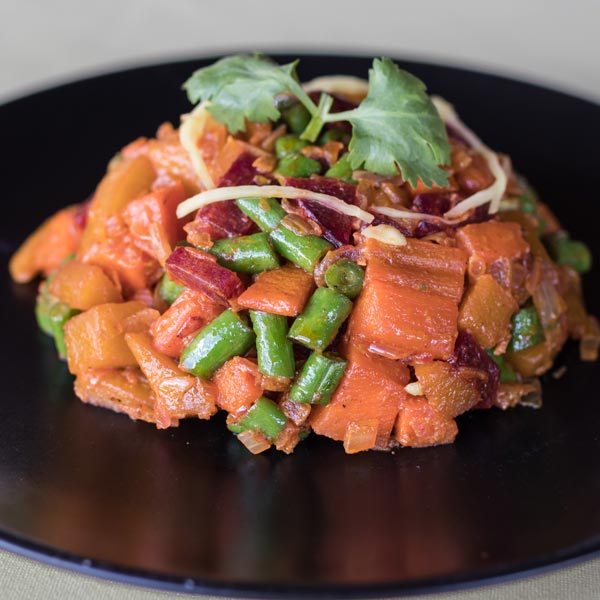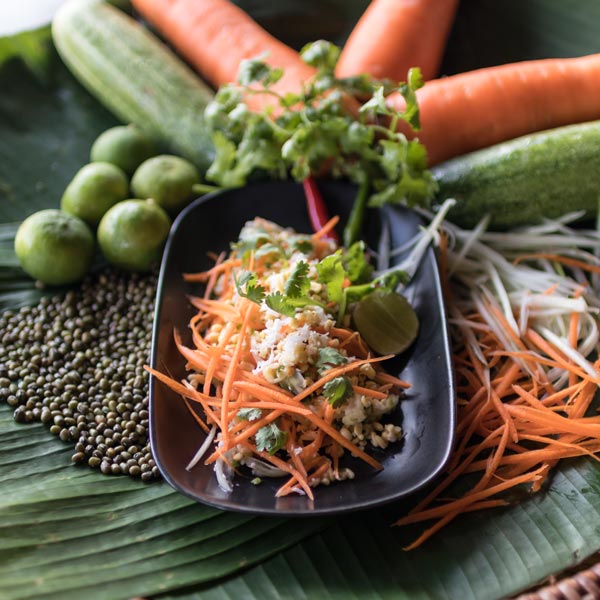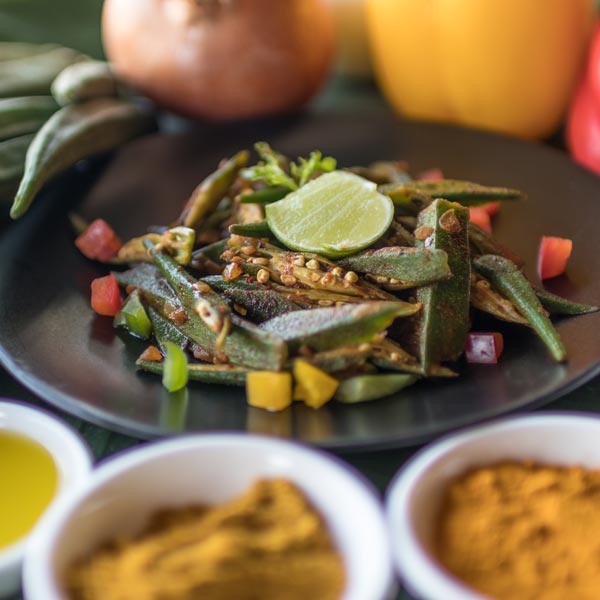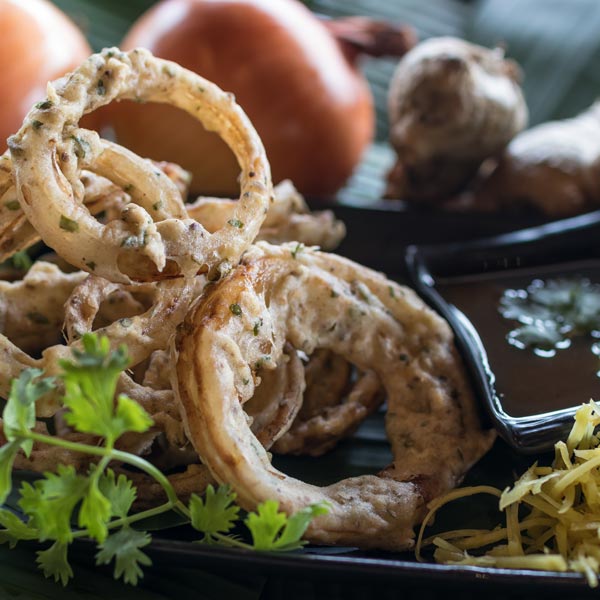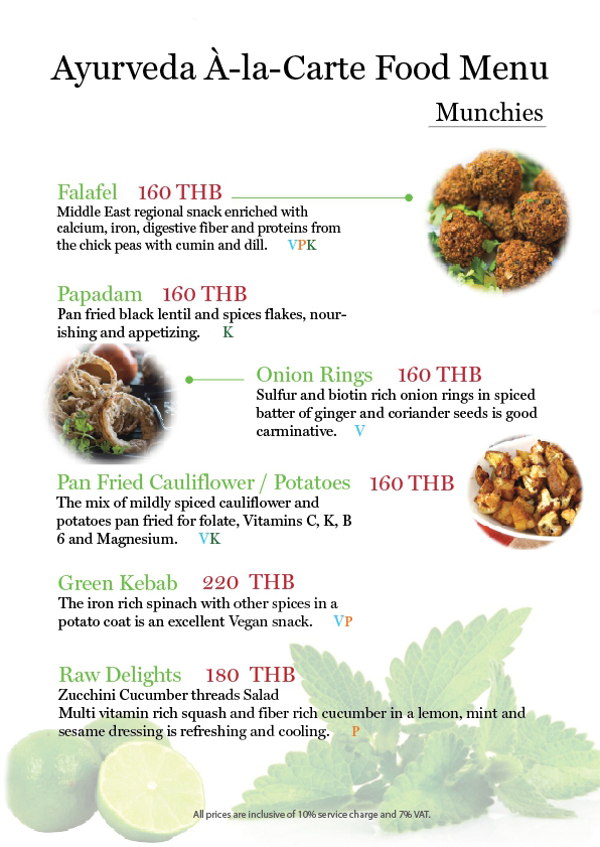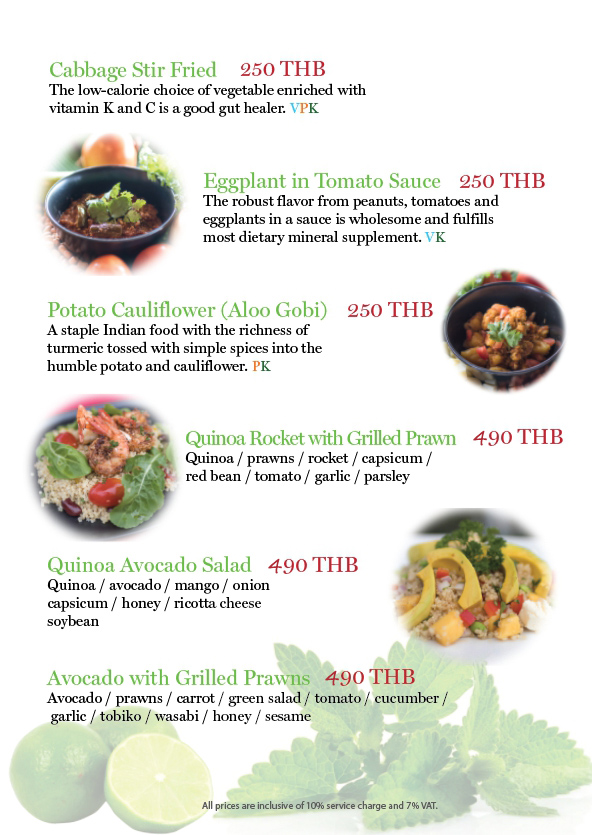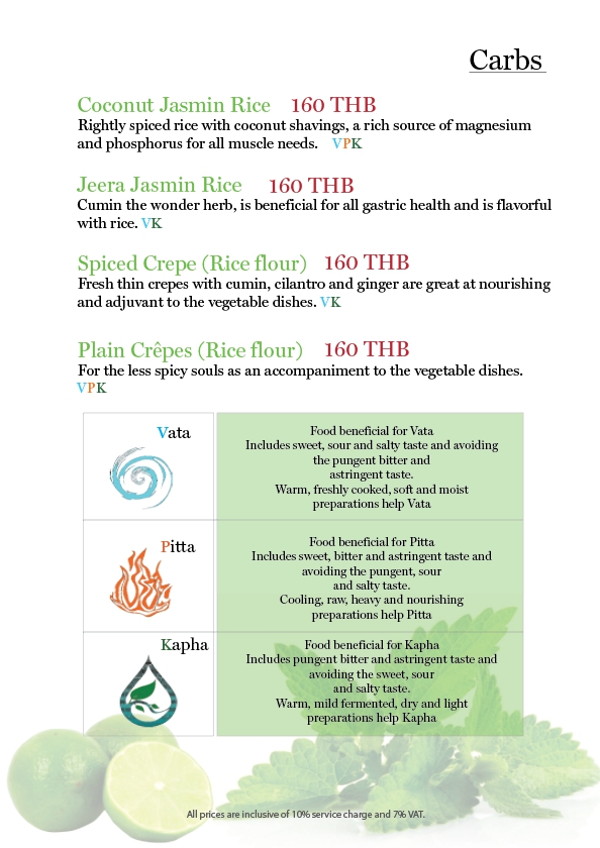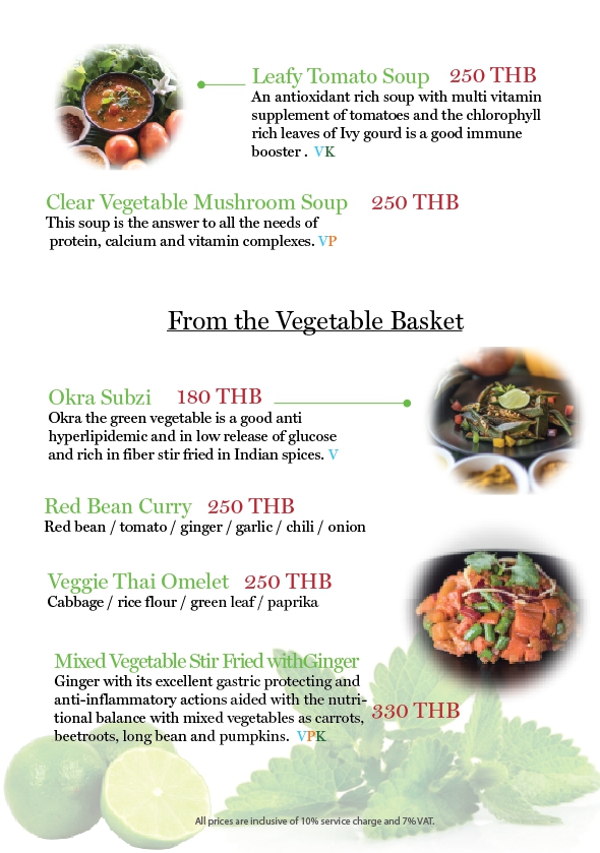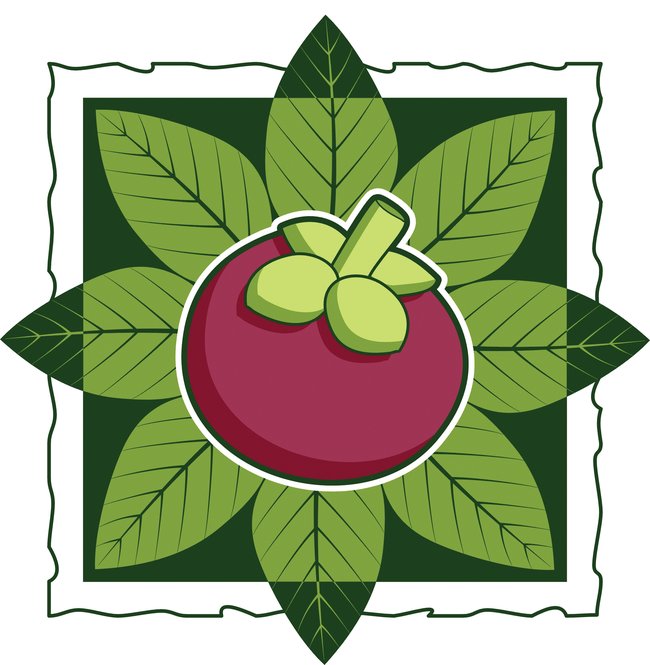Mangosteen Ayurveda & Wellness Resort
Ayurveda Cuisine
Mangosteen Resort offers you the best and healthiest ingredients
WELCOME TO MANGOSTEEN AYURVEDA & WELLNESS RESORT
Healthy, fresh and delicious
A famous Sanskrit quotation from the ancient Vedas says “Annam Bramheti Vyajanat” means – Food is a Creator. This means that we living beings are creations of food which clearly indicates that “We are what we Eat”.
As time passed, we no longer use natural means of growing, storing and cooking foods. Instead, we now rely on unnatural methods using chemicals which lead to lower quality foods that lack the required nutrients and supplements we need as humans.
With Ayurveda cuisine, we use the natural elements in food to assist in the day-to-day processes of the body without placing unnecessary strain on our major metabolic organs and simultaneously building the body’s own natural strength.
Ayurveda, or traditional Indian medicine, takes a holistic approach to health that looks closely at the effects of diet and other lifestyle factors on your physical, mental and spiritual well-being. According to the Ayurvedic system, there is no single diet that is right for everyone. The food you eat has either a balancing or aggravating effect on your body, depending on your constitutional type, or “dosha.”
Enjoy the enormous variety of dishes we have created over the years and feel the difference in just a few days!
MANGOSTEEN AYURVEDA & WELLNESS RESORT
Ayurveda Cuisine
Ayurveda & Six Tastes (Shad Rasas)
In Ayurveda cuisine, food is classified by the effect it has on our body. There are six primary tastes in Ayurveda cuisine, each representing different types of foods and their individual roles in balancing your dosha. Sweet tastes have a strengthening effect, sour tastes stimulate the digestive system, salty tastes maintain your water and electrolyte balance, pungent tastes improve digestion and absorption of nutrients, astringent tastes also help with absorption and bitter taste stimulates all other tastes. Having a good understanding about how they relate to our individual constitution can help us make better choices to promote and maintain health.
According to Ayurveda, we are born with a unique constitution, which is an individual combination of the three Doshas, or principles that govern the function of our bodies on the physical, mental and emotional levels. These three energies are Vata, Pitta & Kapha. Disease is caused by an imbalance of any of the doshas and by the presence of ama, or toxic food byproducts (foods which are not digested) According to Ayurveda, the best preventive medicine and support of the natural healing process is a diet & lifestyle specific to the constitutional needs of the individual.
Incompatible Foods
According to Ayurveda texts certain foods are healthy when consumed alone but when taken in combination with other foods they generate harmful chemicals in the body. These rules include:
Avoid taking milk or yogurt with sour or citrus fruits.
Avoid eating fruits together with potatoes or other starchy foods. Fructose (and other sugars) is digested quickly, whereas starch takes quite some time. In this case the sugar would not be properly digested.
Avoid eating melons and grains together.
Melons digest quickly whereas grains take more time. This combination will upset the stomach. Melons should be eaten alone or left alone.
Honey should never be cooked. Honey digests slowly when cooked and the molecules become a non-homogenized glue which adheres to mucous membranes and clogs subtle channels, producing toxins. Uncooked honey is nectar. Cooked honey is poison.
Do not eat meat protein and milk protein together. Meat is heating and milk is cooling so they counteract one another, disturb agni and produce ama.
Milk and melons should not be eaten together. Both are cooling, but milk is laxative, and melon is diuretic, and milk requires more time for digestion. Moreover, the action of hydrochloric acid in the stomach causes the milk to curdle. For this reason, Ayurveda advises against taking milk with sour fruits, yogurt, sour cream, cheese, and fish.
In order to stimulate appetite one can chew and eat 1/2 teaspoon fresh grated ginger with a pinch of rock salt before each meal.
Ayurveda insists that iced water should not be drunk during or after a meal as it slows Agni and digestion. Small sips of warm water taken during the meal serve to aid digestion. While eating one should properly masticate the food in order to soften it and ensure that it is thoroughly mixed with saliva. If desired, one can finish a meal by drinking a glass of “Takram”. This can be made by blending four teaspoons of yogurt with two pinches of ginger and cumin powder in one cup of water.
When eating, only one third of the capacity of the stomach should be filled with food, one third with liquid and one third should be left empty. This will aid in proper digestion and also promotes mental clarity.
Contact Us:
Contact Details:
Mangosteen Ayurveda & Wellness Resort
+66 (0) 76-289399
+66 (0) 76-289389
WhatsApp: +66 91 0415615
Line-ID: mangosteen-phuket
99/4 Moo 7, T. Rawai, A. Muang
Phuket 83130, Thailand
Open Every Day

